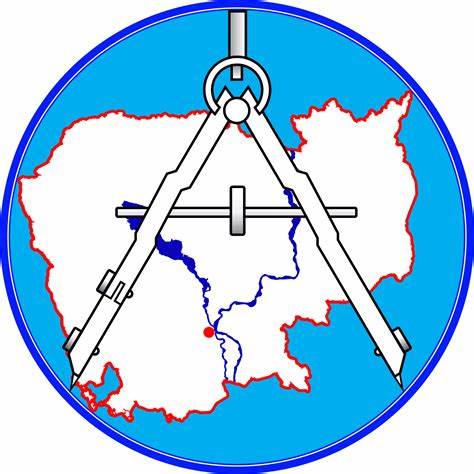Issue Description
As a result of Cambodia’s turbulent past, the legislation and regulations that govern private ownership of immoveable property have been complex and challenging to interpret since private ownership was first recognised in 1992 through the Land Law. Following the subsequent update to the Land Law in 2001, property owners can register their property to be recognised by the Royal Government of Cambodia at the national level by securing an ownership certificate, commonly referred to as a Hard Title. Hard Titles are issued by the Cadastral Office within the Ministry of Land Management, Urban Planning and Construction and are the most secure form of property ownership as it is the only document required to prove ownership. This differs to a Soft Title, where ownership is recognised only at the local administrative level and can be contested by a third party, though as many properties have yet to be transferred into Hard Title, this remains the most common form of ownership in Cambodia.
As Soft Title ownership is not fully recognised by law, it is significantly simpler to process a property transfer to a new owner as this has less administrative involvement, fewer expenses and the risks and obligations associated with a property are transferred entirely to the new owner. In comparison, to transfer property owned with a Hard Title, the parties involved in the purchase are required to draw up a contract detailing the terms and conditions of the sale, prove their identities, pay taxes and engage with the Cadastral Office to facilitate the transfer.
While this conveyancing procedure is typical in most countries, there has been little guidance published by the Royal Government of Cambodia to support owners and purchasers to understand what is involved in the transfer process, expected processing time or required fees. Therefore, this uncertainty forces many people to use an agent to act as an intermediary to facilitate the transfer process with the Cadastral Office. These agents are unlicensed and their use unnecessarily increases the cost of property transfers and processing times, while adding considerable risk as agents can fraudulently take their fee without facilitating the transfer, with little recourse as there is no record or receipts documenting their service. As a result, if an agent has fulfilled their service, property transfers can take up to two to three months to be processed by the Cadastral Office, significantly increasing the time required to purchase legally recognised property in Cambodia.
Impact on business
EuroCham acknowledges that that some parties may wish to engage an agent to simplify their involvement and that administrative processes at the national level can take considerable time, particularly as transfers involve not only the Cadastral Office but also the Ministry of Interior and the General Department of Taxation at different stages of the process. Although property ownership is a right bestowed to all Cambodian citizens, without official guidance from the Royal Government of Cambodia detailing how to transfer property, owners and purchasers remain uninformed and beholden to unlicensed agents to facilitate their transfers. In the case of an agent taking payment and not fulfilling their service, this causes avoidable distress and dissatisfaction for those involved, and has the potential to impact investor sentiment if left unchecked.
The lack of guidance specifying processing times and associated fees, limits the ability of investors and developers to effectively plan, finance or execute construction projects accurately as they require a high level of certainty and understanding of the perceived risks impacting their investments. Similarly, as the official fees are not published, the Royal Government of Cambodia loses an opportunity to efficiently collect revenue as the costs of property transfers are collected by the agent who then adds their fees, increasing the total cost of the service.
Recommendation
- Prioritise the digitalisation of the transfer process of immovable property by launching can online platform.
To best ensure that the process to transfer immovable property is formal, consistent and transparent, we respectfully recommend that the Royal Government of Cambodia take steps to prioritise the digitalisation of this process by launching an online platform. This would allow the parties involved in a transfer to access all of the necessary information online, and submit and track their applications with the Cadastral Office electronically, enabling it to truly act as a ‘One-Stop-Shop’ for property transfers.
By launching an online property transfer platform, the Royal Government of Cambodia would bring much needed clarity to an essential administrative process that impacts all Cambodian citizens and real estate investments as property purchasers will be able to budget and plan accordingly. Furthermore, the electronic collection of fees and taxes will be streamlined and will limit any opportunity for potential abuse, while also removing the need for an agent to facilitate the process entirely.
We envisage that this would complement the Ministry of Land Management, Urban Planning and Construction’s existing modernisation programme, which has seen the launching of the Cambodia Construction app and updated land titles with QR codes. This would be in line with the similar efforts undertaken by Ministries of Labour and Vocational Training, Commerce and Economy and Finance, which have greatly improved their administrative efficiency and reduced resourcing demands by digitalising their services.
Royal government of Cambodia
Initiative from Eurocham: Request in the White Book 2019 (Recommendation No. 61) to prioritise the digitalisation of the transfer process of immovable property by launching an online platform.

Royal Government of Cambodia: With the launch of the Cambodia Construction application, the Royal Government of Cambodia is embracing a processes of digitalization where the permits and construction license can be downloaded and accessible with a QR Code.
Initiative from Eurocham: The issue has been reiterated by the Real Estate & Construction Committee within The White Book edition 2024 in the Recommendation No. 36.
National Counterparts

Ministry of Land Management, Urban Planning and Construction

